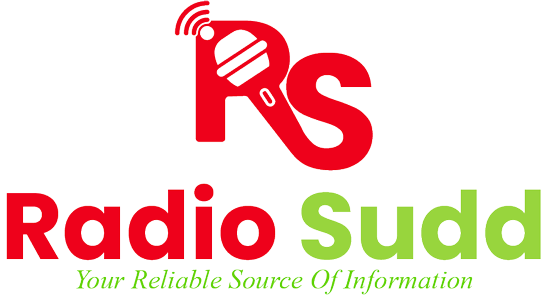By Majok Guet Kuol
BOR, Jonglei, South Sudan – Marol Market, a vital economic hub for thousands in Bor town, is rapidly deteriorating into a public health hazard due to alarming sanitation conditions. Overflowing waste, stagnant water, and a severe lack of clean latrines are raising fears of an imminent outbreak of waterborne diseases like cholera, typhoid, and dysentery.
Vendors and residents alike are expressing increasing alarm. Mary Apiel, a vegetable vendor, described the dire situation: “We work here in very bad conditions, garbage is thrown everywhere, and there’s no one to collect it. Flies are all over our food. Even the few toilets are either locked or not working.” Despite paying 50,000 SSP monthly for garbage fees, Mary says there has been no improvement in waste collection.
Restaurant owner Deng Jacob is equally frustrated, particularly by the rampant presence of pigs roaming freely. “The sanitation here is very poor, especially because of the pigs at our restaurant. We try to manage our waste by collecting and burning it, but these pigs come and scatter the waste before it even starts to decompose,” Jacob lamented. He also pointed to stagnant water along roadsides, including near his restaurant, as a significant health risk to both customers and workers. While Jacob’s restaurant has raised its floor to mitigate flooding, he insists that the problem demands intervention from the Bor Municipal Council. “They should remove these pigs from town and provide garbage bins or bags to all restaurants and shops so that we can keep our places clean,” he urged, fearing a disease outbreak if no immediate action is taken.
For daily shoppers, the threat of disease looms large. Atual Ayom, a boda boda rider and regular at the market, finds some sections almost impassable. “There are parts of the market I no longer go to because the smell is too much, and the waste is everywhere, sometimes you find garbage dumped right in front of shops and food stalls. It’s not safe or hygienic,” Ayom stated. He added that the situation has worsened significantly, with dirty water collecting for days after rain and animals like pigs and goats roaming through it where people shop and eat. Ayom called on the Bor Municipal Council to address these complaints urgently to prevent a cholera or typhoid outbreak.
Lual Dau, the Director of Public Health at Bor Municipal Council, acknowledged the severe hygiene issues, particularly those caused by free-roaming animals. “We are aware of the poor hygiene conditions caused largely by the presence of animals like pigs moving freely within town,” Dau stated. He announced that the council issued a directive last week requiring animal owners to remove their livestock from town areas to improve sanitation, with enforcement and penalties to follow soon. “Any pig or animal found in public spaces will be impounded, and owners will be fined. We want to restore cleanliness and prevent any disease outbreak,” he warned.
Dau attributed the broader sanitation problem to limited funding and equipment. He admitted the council lacks its own garbage collection truck, relying on a hired one to transport waste to the dumping site. “The town has grown, and the market population has increased, but our waste collection capacity has not. We need more support from NGOs and development partners to improve sanitation,” he appealed.
Civil society organizations in Bor have also voiced their concern, advocating for investment in public health infrastructure and community education. John Akuok Nyok, executive of FEED South Sudan, highlighted the multifaceted nature of the problem, encompassing both infrastructure and behavior. “The public health is a major concern in Bor. The health officials only look at shops and other things in Marol but not beyond the town; potholes are now being used by the pigs, animals are everywhere in town that can easily spread diseases to human beings,” Akuok observed. He stressed the need to educate the public on safe waste disposal and handwashing, while urging local authorities to build and maintain sanitation facilities.
Marol Market, despite being Bor’s economic backbone, is at risk of becoming a health disaster, particularly as the rainy season intensifies. Swift action involving investment in waste management, clean water systems, public toilets, and consistent hygiene education for vendors and the wider community is crucial to avert a major health crisis.
Editor’s Note: This story was reported with a grant from Journalists for Human Rights under the ‘Tackling Mis/Disinformation Project,’ funded by the Peace and Stabilization Program of the Government of Canada.
